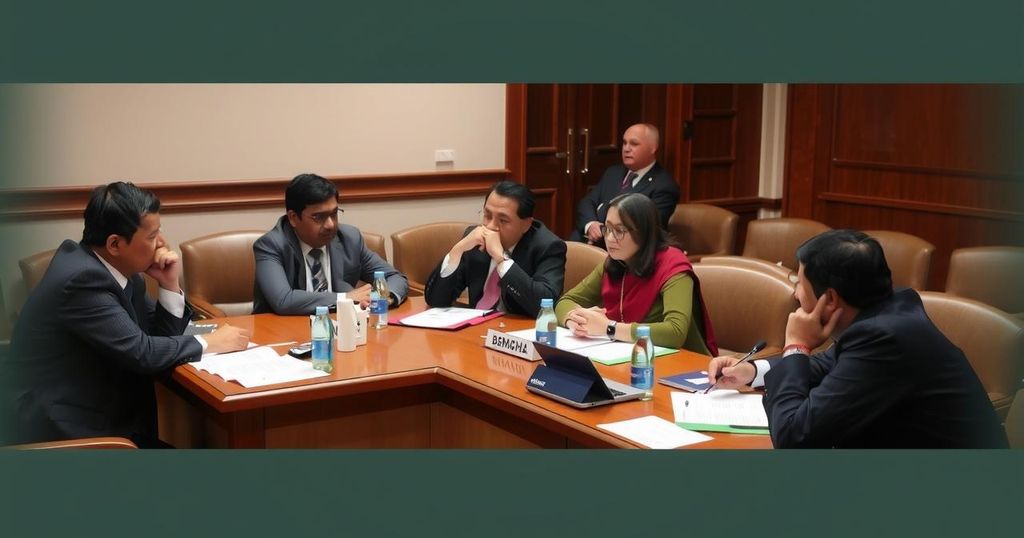Climate change
AND TRIBUNAL, ASIA, ASSEMBLY, BANGLADESH, CLIMATE CHANGE, CLIMATE JUSTICE, EUROPE, GENERAL ASSEMBLY, GERMANY, HAMBURG, ICJ, INTER - AMERICAN COURT OF HUMAN RIGHTS, INTERNATIONAL COOPERATION, INTERNATIONAL COURT OF JUSTICE, INTERNATIONAL TRIBUNAL FOR, INTERNATIONAL TRIBUNAL FOR THE LAW OF THE SEA, ITLOS, ON HUMAN RIGHTS, PARIS AGREEMENT, SECURITY COUNCIL, SUSTAINABLE DEVELOPMENT, UN
Leila Ramsay
0 Comments
Bangladesh’s Role in the ICJ Advisory Opinion on Climate Change
Bangladesh’s participation in the ICJ’s advisory opinion on climate change showcases the nation’s commitment to defining international climate obligations. Despite its minimal contribution to global greenhouse gas emissions, Bangladesh is disproportionately affected by climate change. By advocating for a robust international legal framework, Bangladesh aims to ensure accountability among high-emission states and secure necessary support for resilience and adaptation efforts.
The increasing severity of climate change effects has created a significant legal dialogue internationally. Nations vulnerable to climate impacts, like Bangladesh, advocate for comprehensive obligations against climate change through global frameworks, while industrialized nations often hesitate to comply. The pursuit of advisory opinions from various international institutions, including the International Court of Justice (ICJ), is a strategic approach by these vulnerable countries to clarify their rights and obligations related to climate change under international law.
International courts and tribunals (ICTs) utilize two main types of jurisdiction: contentious and advisory. Contentious jurisdiction pertains to disputes between states, while advisory jurisdiction allows courts to provide legal opinions on matters referred to them by authorized entities like the United Nations General Assembly. Although these advisory opinions are non-binding, they carry considerable persuasive authority. In this vein, the International Tribunal for the Law of the Sea (ITLOS) has already issued opinions on states’ responsibilities concerning greenhouse gas emissions in relation to maritime law. The ICJ’s advisory opinion on climate obligations is highly anticipated as a decisive step toward establishing legal frameworks to combat climate change.
Bangladesh, recognized as one of the most climate-vulnerable countries, actively engages in these proceedings, seeking to delineate state responsibilities in addressing climate change. Its participation in the ITLOS Advisory Opinion about marine pollution from greenhouse gases underscores its commitment to international legal proceedings on climate. At the ICJ, Bangladesh played a key role in facilitating UNGA Resolution 77/276 and presented its submissions and arguments during oral proceedings held in December 2024.
In its legal assertions, Bangladesh highlighted the obligations of states under international law to safeguard the climate system. Key points included the necessity for asserting that developed nations, contributing disproportionately to climate emissions, bear the greatest responsibility for mitigation efforts. As Bangladesh articulated in its submissions, despite contributing a mere 0.52% to global emissions, it faces devastating climate impacts, justifying its call for international assistance in climate adaptation and mitigation strategies.
The anticipated ICJ advisory opinion is expected to be crucial in defining legal consequences for states harming the climate, especially concerning developing nations like Bangladesh. As the ICJ deliberates, Bangladesh is urged to align its domestic policies with its international commitments to effectively respond to climate changes. Such coherence is necessary not only to uphold its advocacy internationally but also to enhance its resilience to climate-related challenges in the future.
Climate change ramifications have triggered diverse responses in international law, particularly concerning states that suffer its effects. The cyclonic vulnerability of countries such as Bangladesh has led them to advocate for decisive international actions. While developing states call for universal obligations, industrialized nations often evade robust commitments. This divergence has driven vulnerable nations to seek clarifying advisory opinions from international courts, including the ICJ, to bolster their claims and secure legal recognition of their rights against climate harm.
In conclusion, the increasing engagement of states such as Bangladesh in the ICJ’s climate change advisory proceedings reflects a growing legal consensus on state responsibilities regarding climate protection. The anticipated outcome of this advisory opinion could significantly influence future international climate law and provide a framework for vulnerable nations to demand accountability from high-emission states. As the global community awaits this crucial ruling, Bangladesh’s proactive stance serves as a critical model for balancing international obligations and national responses to climate change.
Original Source: www.newagebd.net




Post Comment